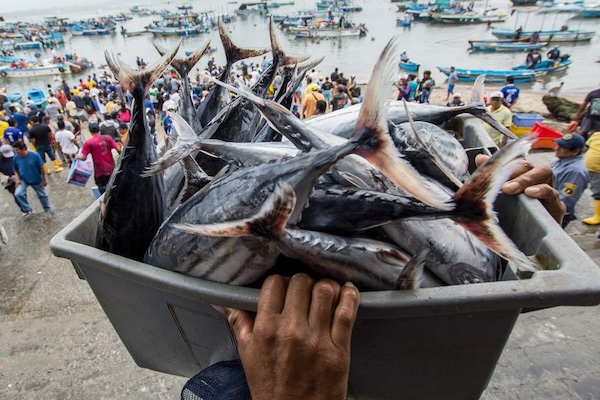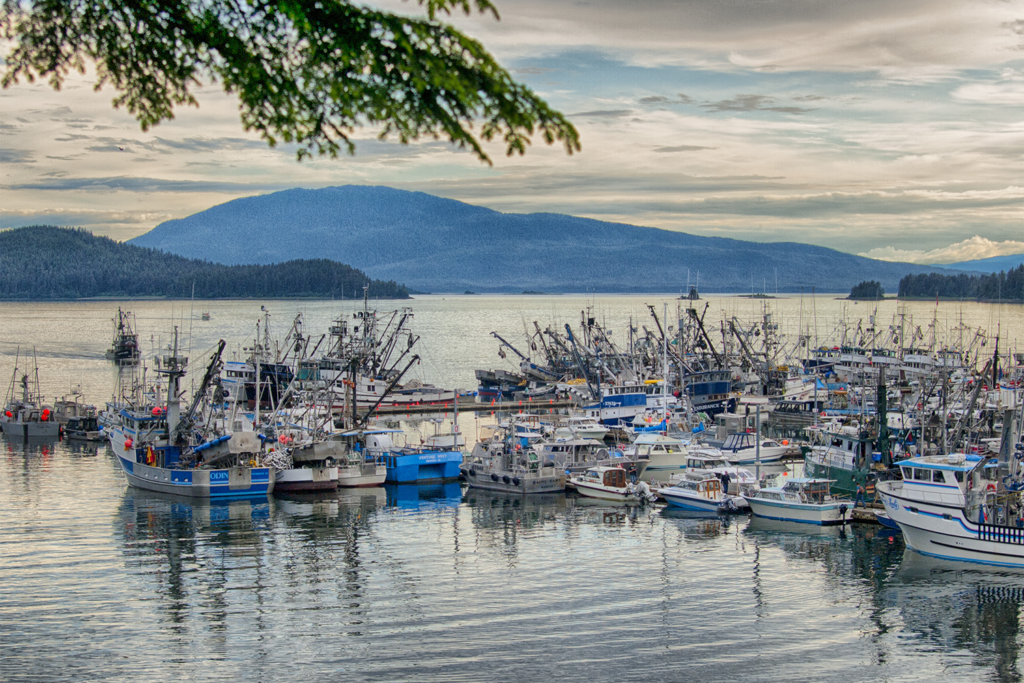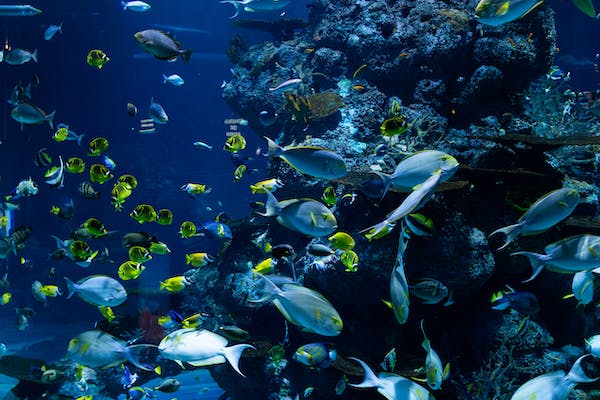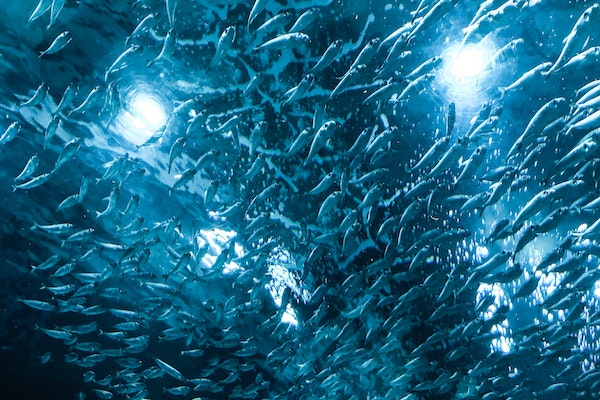Global projections show fish biomass could decline if greenhouse gas emissions remain high

New projections from the Food and Agriculture Organization of the United Nations (FAO) indicate that almost all regions of the world’s oceans, including the top-producing countries and those highly dependent on aquatic foods, face potential climate risks to their fish populations.
The new report, “Climate Change Risks to Marine Ecosystems and Fisheries,” predicts that by mid-century, many regions of the world could see their exploitable fish biomass drop by more than 10 percent, especially if high emissions continue. By the end of the century, if high emissions continue and global temperatures rise by 3 to 4 degrees-C, it could decrease by 30 percent or more in 48 countries and territories.
In contrast, if emissions are kept low and global warming is limited to 1.5 to 2 degrees-C, fish populations in 178 countries and territories are expected to stabilize, with changes ranging from no change to a decrease of 10 percent or less by the end of the century.
“Understanding the potential impacts of climate change on marine ecosystems and their fisheries, and their associated uncertainties, is crucial to design adaptation programs at appropriate scales,” said Manuel Barange, FAO Assistant Director-General and Director of the Fisheries and Aquaculture Division. “Lower emissions significantly reduce end-of-century biomass losses for nearly all countries and territories compared to the high-emissions scenario. This highlights the benefits of climate change mitigation measures for fisheries and aquatic foods.”
In top fish-producing nations, fish biomass could decline significantly by the end of the century if high emissions continue. For example, Peru could see a 37.3 percent drop, and China could see a 30.9 percent drop in their Exclusive Economic Zones. However, if emissions are kept low, these declines are expected to stabilize.
The report was created by FishMIP, an international group of researchers working with the FAO to study how climate change affects marine ecosystems and fisheries. It uses advanced numerical models to make predictions, including Small Island Developing States, where people rely heavily on fisheries for food and income and where climate change’s ecological and socio-economic risks are highest. For example, among the Pacific Islands States, 68 to 90 percent of the extreme end-of-century losses projected under high emissions are averted by the low-emissions scenario for the Federated States of Micronesia, Nauru, Palau, Solomon Islands and Tuvalu.
The report also pointed out that to assist countries in achieving FAO’s Blue Transformation vision of more resilient, equitable and sustainable aquatic food systems, future FishMIP research must encompass other ocean and coastal uses in addition to fisheries.
Now that you've reached the end of the article ...
… please consider supporting GSA’s mission to advance responsible seafood practices through education, advocacy and third-party assurances. The Advocate aims to document the evolution of responsible seafood practices and share the expansive knowledge of our vast network of contributors.
By becoming a Global Seafood Alliance member, you’re ensuring that all of the pre-competitive work we do through member benefits, resources and events can continue. Individual membership costs just $50 a year.
Not a GSA member? Join us.
Author
Tagged With
Related Posts

Responsibility
High ocean temperatures helped make 2023 the hottest year ever recorded
A new study found ocean temperatures were “off-the-chart” in 2023, causing more intense weather patterns and impacting marine life.

Fisheries
Climate change intensifies inequalities in the availability of seafood nutrients
Researchers argue for nutrition- and climate-sensitive fisheries management with food-based trade policies to prevent a decline in seafood nutrients.

Responsibility
Study proposes ‘more realistic’ modeling for climate change impacts on marine ecosystems
A new global model pinpoints marine regions where extreme temperatures are likely to have particularly harmful effects from climate change.

Responsibility
Study: Global warming above 2 degrees-C will lead to ‘irreversible loss in marine ecosystem habitability’
CSIRO determines that global warming above 2 degrees-C will decrease viable ocean habitats and will affect fishing grounds and productivity.



